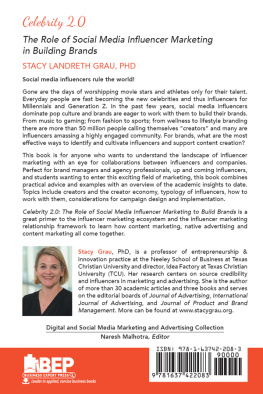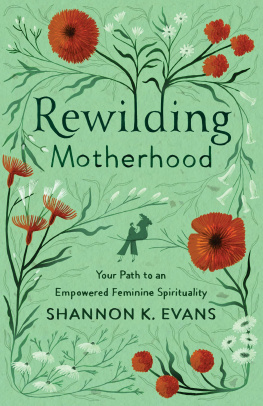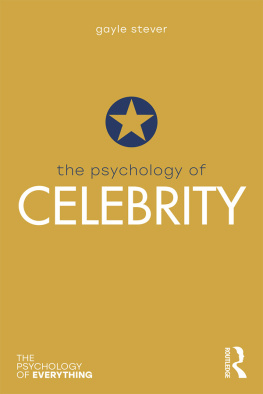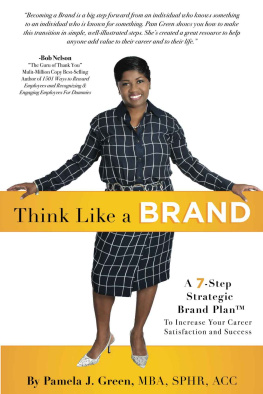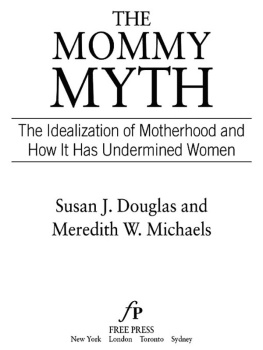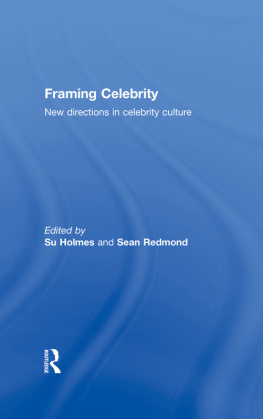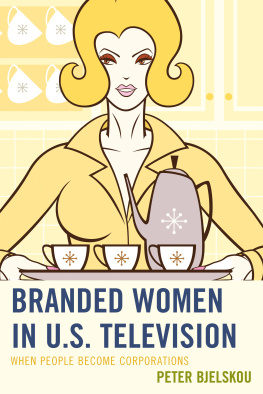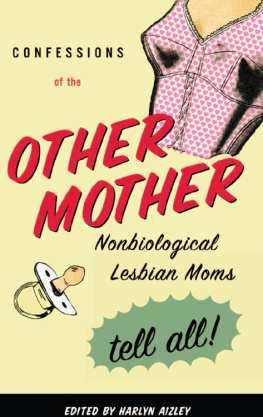Postfeminist Celebrity and Motherhood
This book analyzes the intersections of celebrity, self-branding, and mommy culture. It examines how celebrity moms playing versions of themselves on reality television, social media, gossip sites, and self-branded retail outlets negotiate the complex demands of postfeminism and the current fashion for heroic, labor-intensive parenting. The cultural regime of new momism insists that women be experts in both affective and economic labor, producing loving families, self-brands based on emotional connections with consumers, and lucrative salable commodities. Successfully creating all threea self-brand, a style of motherhood, and lucrative product salesis represented as the only path to fulfilled adult womanhood and citizenship. This book interrogates the classed and racialized privilege inherent in those success stories and looks for ways that the versions of branded motherhood represented as failures might open a space for a more inclusive emergent feminism.
Jorie Lagerwey is a lecturer in television studies at University College Dublin, Ireland. Her research interests include gender, celebrity, genre, and religion on television and other digital media. Her work has appeared in Cinema Journal, Studies in Popular Culture, Spectator, Flowtv.org, and elsewhere.
Routledge Research in Cultural and Media Studies
For a full list of titles in this series, please visit www.routledge.com.
80 Biopolitical Media
Catastrophe, Immunity and Bare Life
Allen Meek
81 The Emotional Life of Postmodern Film
Affect Theorys Other
Pansy Duncan
82 Social Memory Technology
Theory, Practice, Action
Karen Worcman and Joanne Garde-Hansen
83 Reviving Gramsci
Crisis, Communication, and Change
Marco Briziarelli and Susana Martinez Guillem
84 Motherhood in the Media
Infanticide, Journalism, and the Digital Age
Barbara Barnett
85 The Pedagogies of Cultural Studies
Edited by Andrew Hickey
86 Intimacy on the Internet
Media Representation of Online Intimacy
Lauren Rosewarne
87 The DIY Movement in Art, Music and Publishing
Subjugated Knowledges
Sarah Lowndes
88 Advertising and Public Memory
Social, Cultural and Historical Perspectives on Ghost Signs
Edited by Stefan Schutt, Sam Roberts and Leanne White
89 Postfeminist Celebrity and Motherhood
Brand Mom
Jorie Lagerwey
First published 2017
by Routledge
711 Third Avenue, New York, NY 10017
and by Routledge
2 Park Square, Milton Park, Abingdon, Oxon OX14 4RN
Routledge is an imprint of the Taylor & Francis Group, an informa business
2017 Taylor & Francis
The right of Jorie Lagerwey to be identified as author of this work has been asserted by her in accordance with sections 77 and 78 of the Copyright, Designs and Patents Act 1988.
All rights reserved. No part of this book may be reprinted or reproduced or utilised in any form or by any electronic, mechanical, or other means, now known or hereafter invented, including photocopying and recording, or in any information storage or retrieval system, without permission in writing from the publishers.
Trademark notice: Product or corporate names may be trademarks or registered trademarks, and are used only for identification and explanation without intent to infringe.
Library of Congress Cataloging-in-Publication Data
Names: Lagerwey, Jorie, author.
Title: Postfeminist celebrity and motherhood: brand mom / by Jorie Lagerwey.
Description: New York: Routledge, 2016. | Series: Routledge research in cultural and media studies; 89 | Includes bibliographical references and index.
Identifiers: LCCN 2016011429
Subjects: LCSH: Motherhood. | Celebrities. | CelebritiesFamily relationships. | Branding (Marketing)Social aspects. | Mass media and families. | Feminism and mass media.
Classification: LCC HQ759 .L295 2016 | DDC 306.874/3dc23
LC record available at https://lccn.loc.gov/2016011429
ISBN: 978-1-138-64038-2 (hbk)
ISBN: 978-1-315-63666-5 (ebk)
Typeset in Sabon
by codeMantra
I would like to thank Felisa Salvago-Keyes, Christina Kowalski, and Erica Wetter at Routledge. Thanks to Stacy Grouden and Parisa Haghshenas for their excellent administrative help. Thank you to the anonymous reviewers and Julie Wilson for providing generous, detailed, and constructive feedback on the early stages of the manuscript. Finally, thanks to my extraordinary, brilliant, kind, and generous friends for talking through ideas and reading drafts. Thank you, Suzanne Scott, Chris Hanson, Julia Himberg, Emma Radley, Taylor Nygaard, Bella Roe, Elizabeth Affuso, and Janani Subramanian, and my sister-in-law, guide and inspiration to all things mommy blogging, Hilary Lagerwey.
In the lead up to Mothers Day 2014, an online greeting card shop created a viral video advertisement called Worlds Toughest Job. In the video, the ad agency posted a job announcement for a Director of Operations, and when real applicants applied and were interviewed, the job was described as the most important job in the world and yet unpaid, 135 hours per week with no breaks, extra work on holidays, and requiring a constant happy disposition.1 The applicants featured in the video asked if they were allowed to eat (only after the associate has eaten) or, indeed, if such working conditions were legal (yeah). Eventually, the interviewer revealed that millions of people already do this impossible job: Mothers. Rather than responding with frustration at being duped into a fake job interview, all of the applicants, men and women, looked into their computers cameras and tearfully recounted stories of their love for their own mothers.
This type of worshipful stance toward an iconically hard-working and supposedly universal mother figure is representative of popular cultures contemporary obsession with moms. This peculiarly specific and detailed image of heroic motherhood is loving, compassionate, and devoted to her children; she may or may not work outside the home, but vitally, she works incredibly long hours in service to her family. She is completely self-sacrificing and fulfilled by the intense affective labor of this style of motherhood. This mother is intertwined with capitalist brand culture and recession; she is determinedly middle-class or upper-middle-class but never too wealthy or too poor; she is suburban rather than rural, she is in her 30s and 40s, neither too old nor too young; and she is most often white. This mother is deeply political while being represented as totally outside politics; she is repeatedly invoked to create an idealized image of an American nation. We see her in advertising campaigns like the one described above, but also in political campaigns ranging from Sarah Palins infamous momma grizzly characterization during her 2008 Vice Presidential run to Michelle Obamas self-identification as Mom-in-Chief during her 20082016 tenure as First Lady of the United States.2 More insidiously, this mother is mobilized in conservative rhetoric aimed at denying women access to contraception, health care, and reproductive choice, but she is also used by liberal politicians fighting these same policies.
This mother is a hallmark of postfeminist culture and has become an integral part of how we understand adult women in popular media from films like the mom-centered romantic comedies


